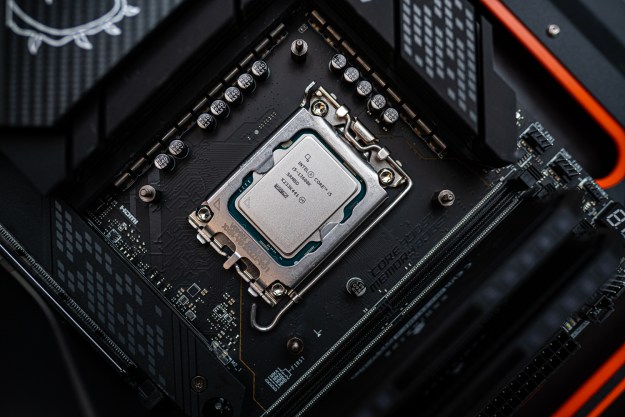Intel is promising some important upgrades when it launches its next-generation Raptor Lake processor later this year, including a boost in core count that could lead to a bump in performance. The company confirmed up to double-digit improvements with Raptor Lake.
Raptor Lake will be the company’s 13th generation of processors, following on the success of the company’s current 12th-gen Alder Lake release. Like Alder Lake, Raptor Lake will continue with Intel’s shift toward a hybrid heterogenous silicon design mixing high performance with high-efficiency cores.

At the company’s investor meeting, Intel surprised the audience with new revelations about Raptor Lake’s architecture. Intel executives confirmed that Raptor Lake will come with twice as many efficiency cores as Alder Lake, which means that the overall processor design could top out at 24 cores and 32 threads. These cores would then be comprised of eight performance cores and 16 high-efficiency cores on the premium Raptor Lake-S desktop processor, according to VideoCardz.
In addition to coming with more cores, the good news for those looking to upgrade from 12th Gen Alder Lake processors is that the new Raptor Lake desktop silicon will maintain socket compatibility with Intel’s current LGA1700 motherboard, so gamers looking for the most feature-rich performance won’t have to upgrade to a new board.
With the new architecture, Intel is making broad performance promises of up to double-digit gains with the 13th generation. Raptor Lake also comes with what Intel describes as enhanced overclocking features, and the processor is built on the Intel 7 process node.
Enthusiast tech channel Moore’s Law is Dead stated on YouTube that Raptor Lake could deliver improvements anywhere between 8% and 15% on single-threaded applications and performance improvements of up to 40% for multi-threaded applications compared to Alder Lake. If these numbers are accurate, the additional high-efficiency cores could give Raptor Lake a big edge over the 12th-gen Alder Lake platform.

Any performance improvement Intel can squeeze from its latest silicon would be good news for the firm, which is facing stiff competition from AMD and Apple. The latter uses its own custom processors on the latest Mac products.
The publication noted that Rapture Lake-S, Intel’s desktop silicon, is scheduled to launch in the late third quarter of this year, so we’ll likely see new gaming desktops show up toward the end of September.
For mobile users, Raptor Lake H, HX, and U silicon is believed to be coming in the fourth quarter of this year following the launch of the 13th generation on desktops. This means that laptops with Intel’s 13th-gen silicon will, hopefully, become available by the holiday shopping season.
The late 2022 launch timeline could mean that we’ll see new GPUs arrive with the launch of the 13th generation later this year.
Editors' Recommendations
- Some Intel CPUs are about to take a big performance hit, report says
- It just became the perfect time to buy a last-gen Intel CPU
- Intel’s CPUs just got way more confusing
- Some surprising details on Intel’s upcoming 14th-gen laptops just leaked
- Intel’s Raptor Lake refresh prices have leaked, and hikes are on the way


